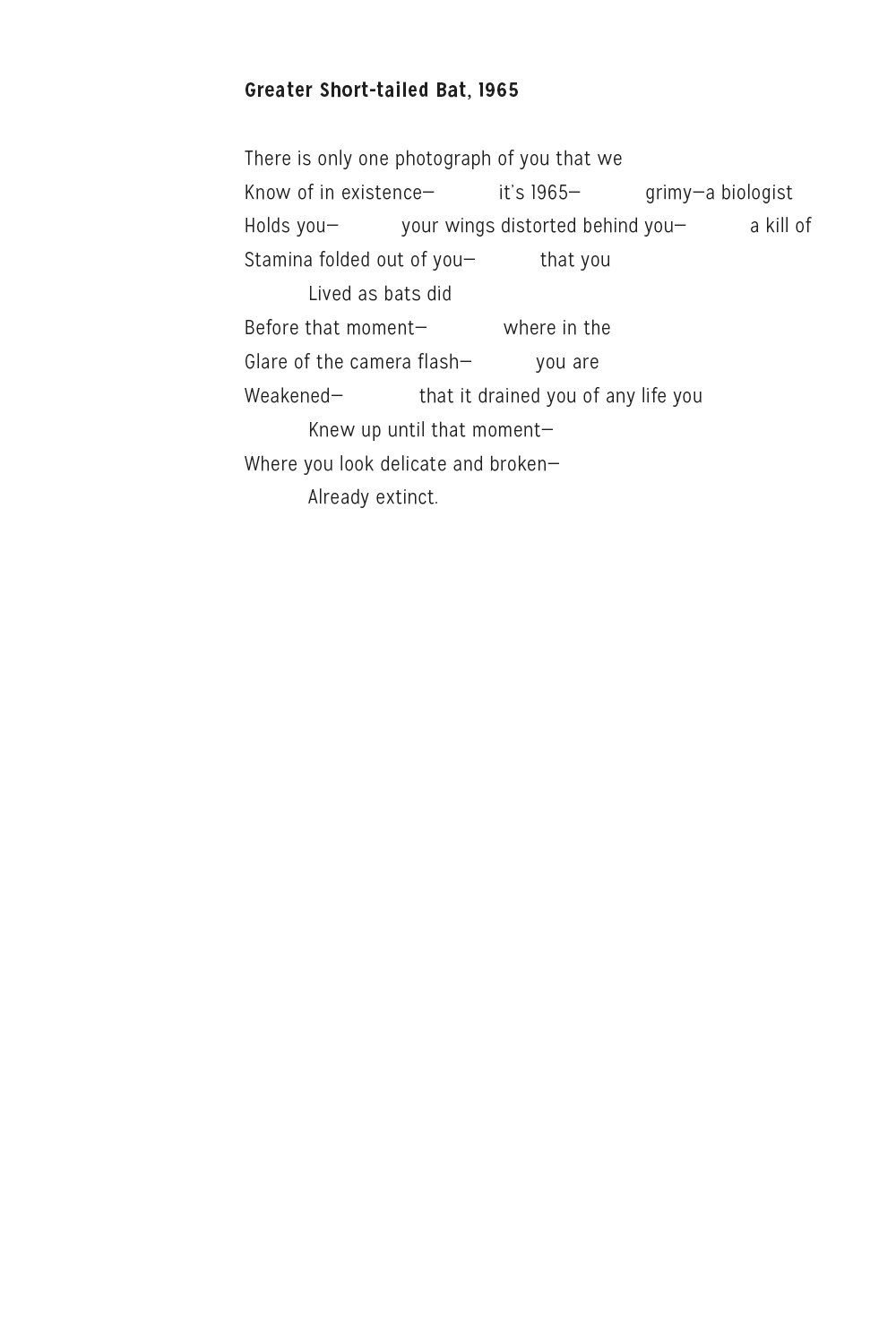Hannah Rodabaugh is a teaching writer at The Cabin and a co-organizer for Ghosts & Projectors, a Boise-based poetry reading series. She was the 2017 Artist in Residence for Craters of the Moon National Monument and has received grants from the Idaho Commission on the Arts and the Alexa Rose Foundation. Her previous chapbook With Words: Verse in Concordance was published by Dancing Girl Press. She has been featured in Berkeley Poetry Review, ROAR Magazine, Horse Less Review, Written River, Rat's Ass Review, Nerve Lantern, and others.





